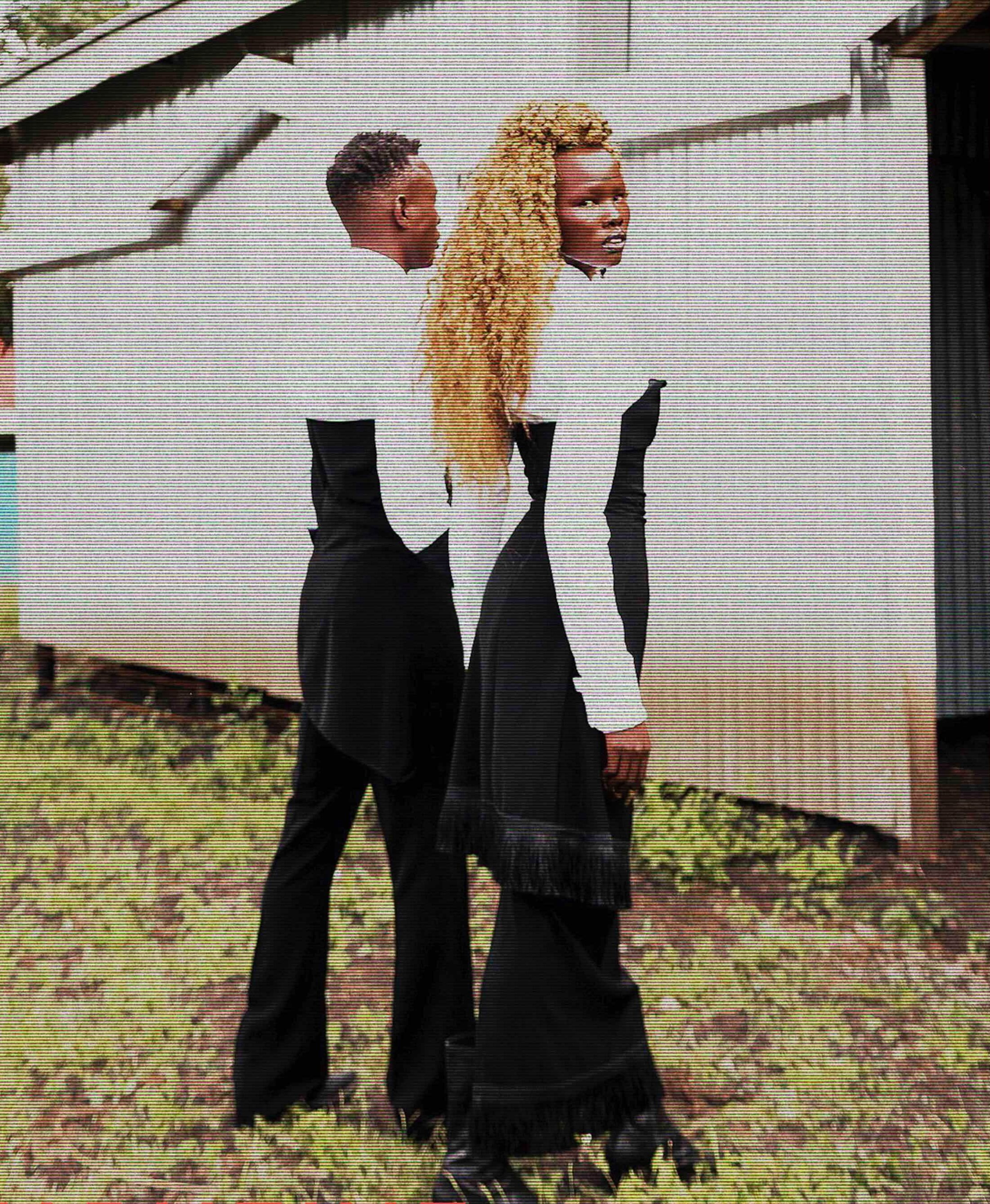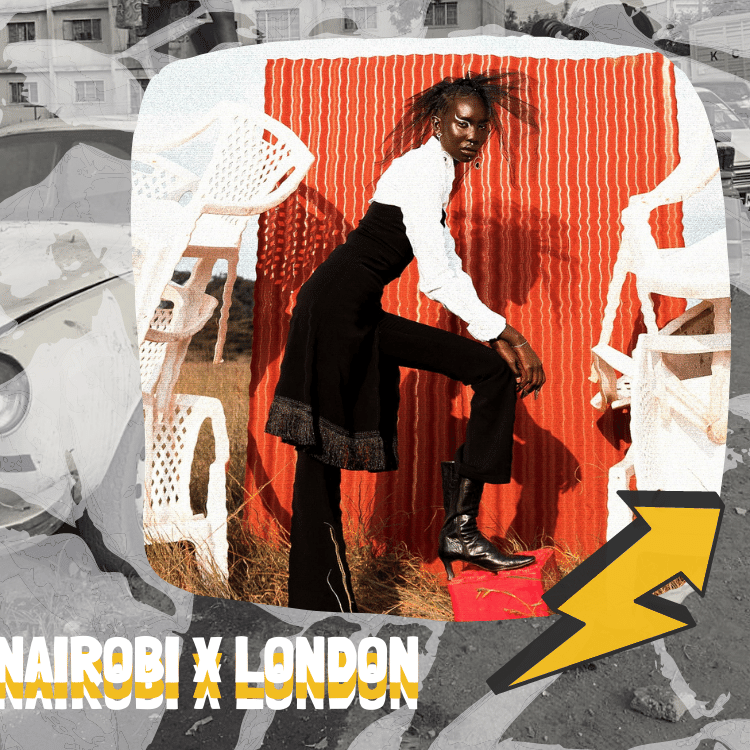< Back
With global attitudes swiftly changing toward gender fluidity and the vitality of being your authentic self, young fashion designer and make-up artist Jamie Bryan Kimani champions androgynous fashion in Kenya with his brand Sevaria.
Since launching in 2018, Jamie has established a reputation for statement apparel that beams with individuality and self-expression.
In Conversation With Sevaria
Words by Raabia Haq
Your designs are so beautiful and graceful. Where does your aesthetic stem from?
Jamie: It started with my own personal style. I don’t like being boxed into gender and couldn’t find the things I liked in the men’s section, so I started making clothes myself. I’m fascinated by East African culture, which is where I find so much inspiration for androgynous fashion. Even though gender fluidity and queerness are still taboo in Africa, I don’t like to focus on the negatives. Instead I focus on the positives by incorporating the stories of our heritages and tribes, such as using fabrics from the Maasai, to show how rich and beautiful our culture is.
Do you feel pressure to make your designs look 'African'?
Jamie: I do in the sense of incorporating African textiles. Sometimes I feel guilty for buying a fabric that’s not traditional but I realised that as long as there are hints of it, there is still a way of appreciating the culture. The fabrics are fairly expensive and I have to travel to Nigeria to get what I want. In the next five years I hope we will have more resources to incorporate traditional styles.
How did the pandemic impact you and your brand?
Jamie: The pandemic caused a lot of uncertainty and with Sevaria I didn’t know what was going to happen. With no functions or events, sales became difficult and lockdown meant finding new ways of working. But doing make-up has always been very therapeutic for me. As soon as I hold a make-up brush, it’s like I am in another world.

“Clothes are the artistic change
we need to better society”
Jamie Bryan Kimani
What are you working on at the moment?
Jamie: We are campaigning a charity T-shirt design, which is white with black hand crochet, with 70 per cent of each sale helping underprivileged girls by providing them with sanitary towels. I also recently worked with Enda [footwear brand] to develop an androgynous clothing line with profits going to LGBTQ+ centres in Kenya. I feel that in this way, clothes are the artistic change we need to better society.
What impact do you hope to make with Sevaria?
Jamie: I want people to feel pride when they wear my clothes; pride in their sexuality, in being African, being queer, being different. I want people to feel seen and feel appreciated.
If you weren’t in fashion, what would you be doing?
Jamie: I’m a huge fan of the arts. Growing up, I knew I belonged in the realm of pop culture involving acting and music, which is still reflected in my designs. I love Fela Kuti, for example. His outfits, performances and stage presence were mesmerising and so I have incorporated his influence into my make-up and fashion designs.
Where do you see yourself in 20 years from now?
Jamie: I hope Sevaria thrives in the future. I’m a designer who likes showbiz, I’m a showman! I love the 1990s fashion era when the supermodels had personality and the shows were so glamorous. No two Alexander McQueen shows were ever alike and that’s what I want to achieve. When you think of African brands, I want Sevaria to be in the top five.
“Make-up has always been therapeutic for me. As soon as I hold a make-up brush, it’s like I am in another world”
Jamie Bryan Kimani
< Back




